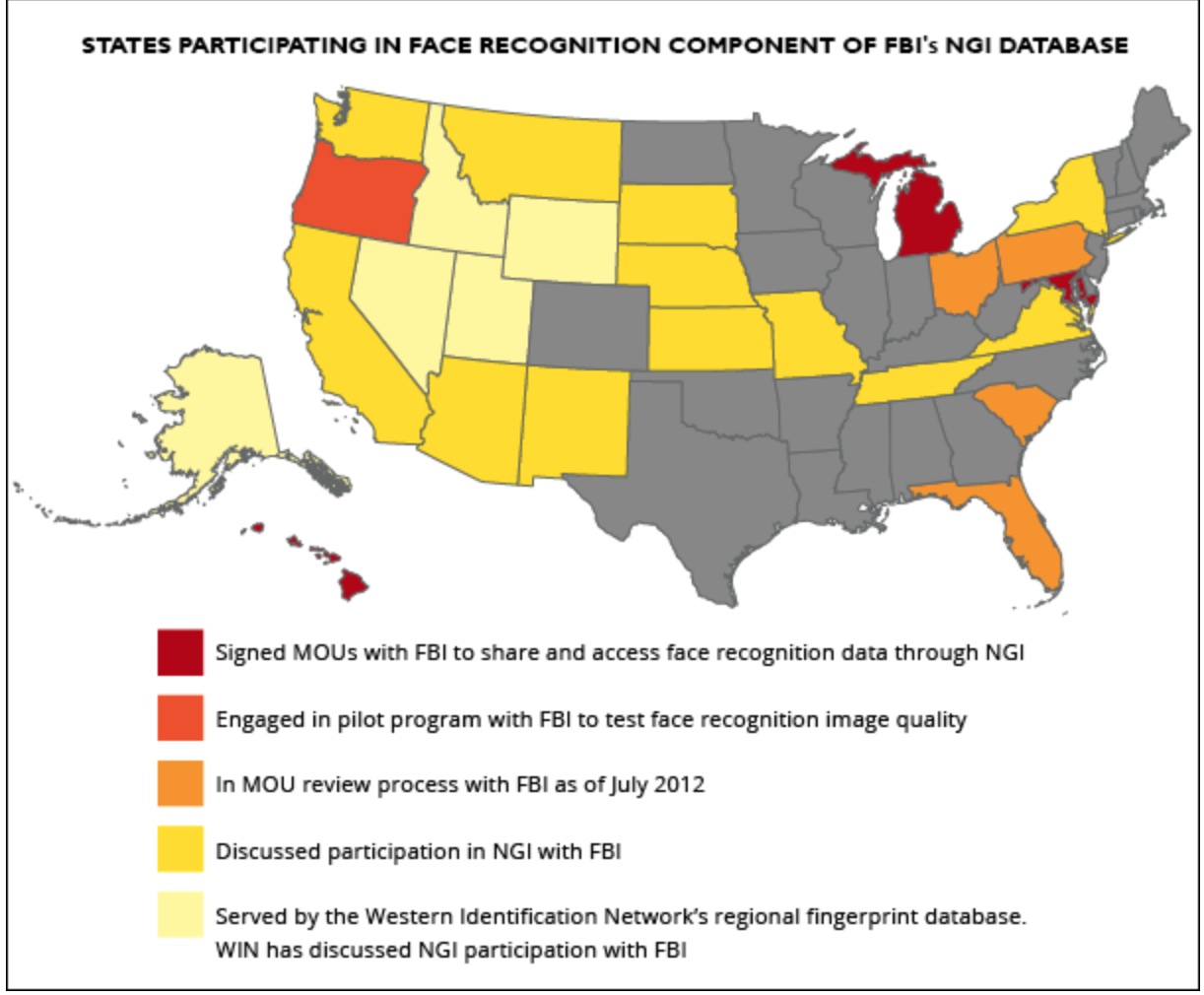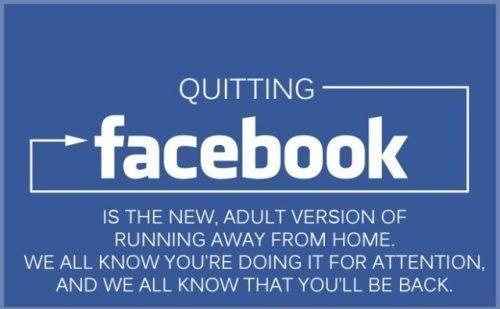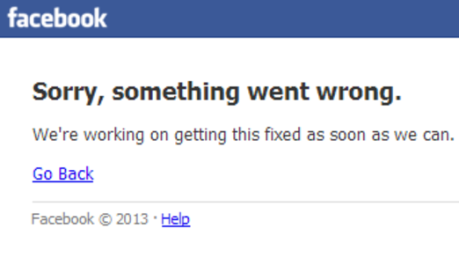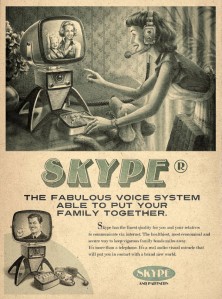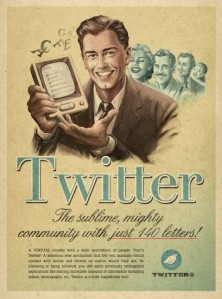Tag Archives: Facebook
It looks like I’m returning to Facebook
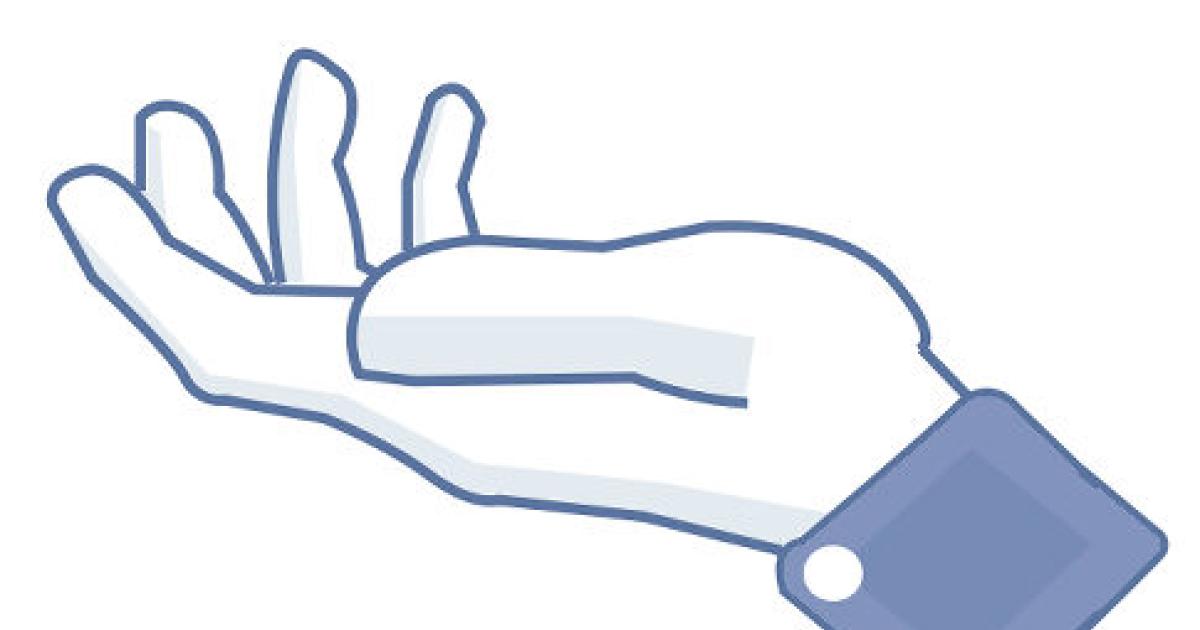
I’ve been off Facebook for a while now, and to be honest, I don’t miss it. I wrote a post a couple of years ago explaining why, and my stance hasn’t much changed since then. If anything, it’s gotten worse, with news of them curating their feeds, selecting what I can see or their insane charges for visibility, and injecting a political agenda into their operations.
I also know that Facebook is actually good for keeping in touch. It makes it easy, and when I did have an account I got friend requests from people I hadn’t seen in decades, including friends in Sweden! My piano teacher from when I was a kid, high school friends, it was nice.
There was a lot of nonsense drama, of course, and I do not approve of drama, but I suppose that’s par for the course; it happens in real life too. I can’t fault people for being people. Not too much, anyway.
Still, I kept away with only the occasional thought that it would be nice to be in better touch with people. Then, I received an email from my closest, dearest friend, who I visit every year towards the end of October. He said he was distressed by the fact that as I begin the voyage back home, we always enthusiastically say “we’ll keep in touch!” And while we say it with good intentions, and well-meaning, and do keep to the pledge for the first few months, life and time gets in the way and it always trails off and we go months without communicating. So he asked me to get back on Facebook.
I don’t like that Facebook is so dominating as a means of communication, but it is easy. I remember almost missing a concert because a group of friends arranged the whole thing on Facebook and because I wasn’t on it I didn’t hear about it. One of them contacted me via text to tell me and I ended up seeing the show after all, but I fear a societal reliance on it that makes it hard to oppose. Although our friendship has lasted for over twenty years, like him I have worried about it becoming more distance because of the distance, and my distaste for Facebook can be overcome to ensure the friendship continues. It’s an issue of priorities and between the two, Facebook doesn’t even register.
Also, while I’m not certain, I believe logging in will restore my account to where it was before, whatever that means. We’ll see.
Oh, one other thing: I haven’t done it yet. I told him I will but I need to rev up for it. This isn’t something to be undertaken lightly!
Good
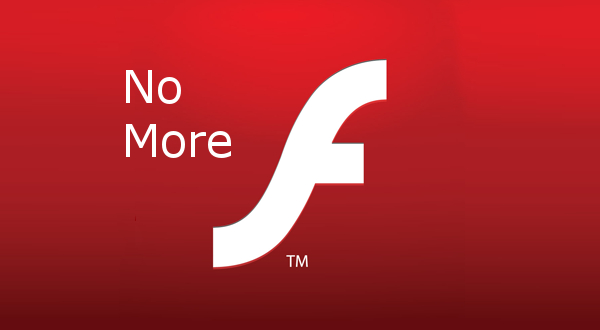
Of all the annoyances of using PCs, both Windows-based and Mac, the one that drives me the most insane is dealing with Adobe’s Flash. Flash is the platform that allows everything from video to banner ads to display embedded in a webpage, so if you’ve ever had a video start playing, or a banner ad proclaiming “Swat the fly and win an iPad!” or vicious, malicious software installed on your PC, well, you have Flash to thank for that.
Facebook now lets you choose a digital heir
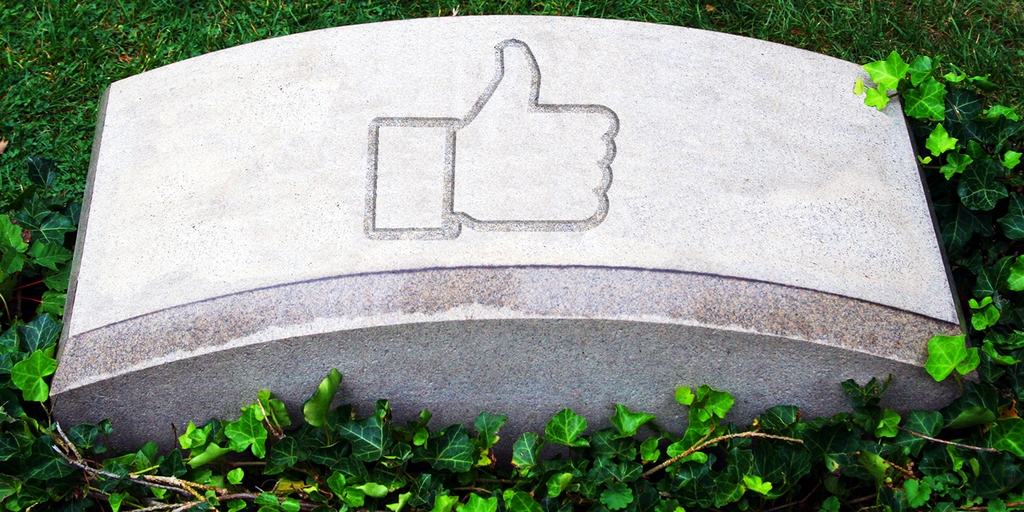
Since its inception, Facebook has been struggling with what to do when one of its subscribers passes away. In the past, their general approach was to either lock the profile when they discovered its owner has died, causing grief for those left behind at one of the most difficult times a person faces, delete the account or convert it into a memorial. The latter would remove personal information, status updates, and only allow friends to post on the wall of the deceased.
Now, Facebook is allowing you to choose what they refer to as a “Legacy Contact,” who can take control, in some ways, of your profile. They won’t be able to see your messages or remove friends, but they will be able to respond to friend requests, as well as make a header post on your profile and update the main photos. You have to let Facebook know that the person has died, and the person chosen as the legacy contact won’t know they have been chosen until after the person who chose them has made their way to the great beyond. There’s no doubt that memorializing and Facebook itself can be one way to help people grieve.
What happens to social media profiles in the case of death has been an issue for a long time, and every social media site deals with it in their own way. Twitter, for example, only allows for an account to be deactivated, and their policy on this explicitly states that they will not give anyone access to a deceased’s account, regardless of their relation to the person (although in some cases they have).
I deactivated my Facebook account almost a year ago for reasons I detailed extensively on this post. However, considering over a billion people use it, and that it is *the* social network, I’m surprised it took so long for them to implement something of this sort.
Specifics can be found on this Facebook page.
More Facebook, but actually Internet privacy
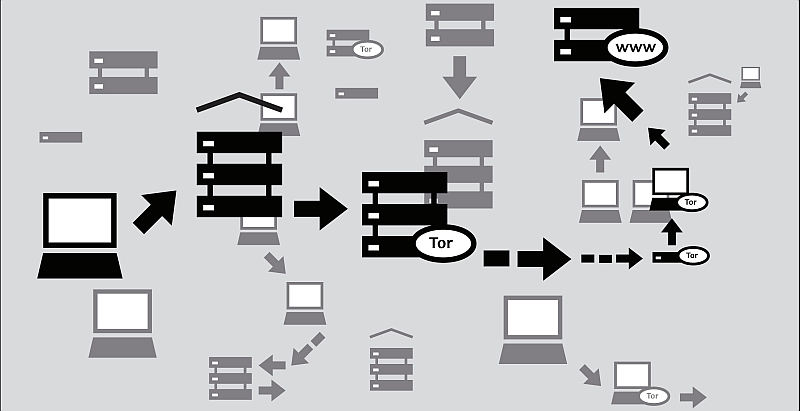
Boy, this week is all Facebook all the time. Weird, considering I don’t use it.
So a couple of days ago I made a post about why I’m not on Facebook, at least at this particular time in my life, but I know many others are and that’s ok. For those of you who are, have you ever worried that someone might be spying on you while you connect? It seems like a strange thing to wonder about considering the whole purpose is to be visible, but in other parts of the world, sharing photos or other information on sites like that can result in serious consequences.
So in a somewhat surprising move, Facebook has created a version of their site that can only be accessed using TOR software. Let me give you some background:
TOR is (was) an acronym for “The Onion Router” (which is why the technically correct way of writing it is TOR, not Tor, although Tor is now the catchall term for it). What it does is bounce your connection to a site through a trusted series of secure points before you head out on to the Internet proper through an exit node, where you exit form the Tor network tot he Internet itself, all of which makes it very difficult to trace your origins or determine the true destination of what you’re doing on line. So if someone wants to monitor your network connections to try and determine where you’re going or what the origin of a particular transmission is, TOR would make that very difficult.
Why I’m not on Facebook, at least for now.
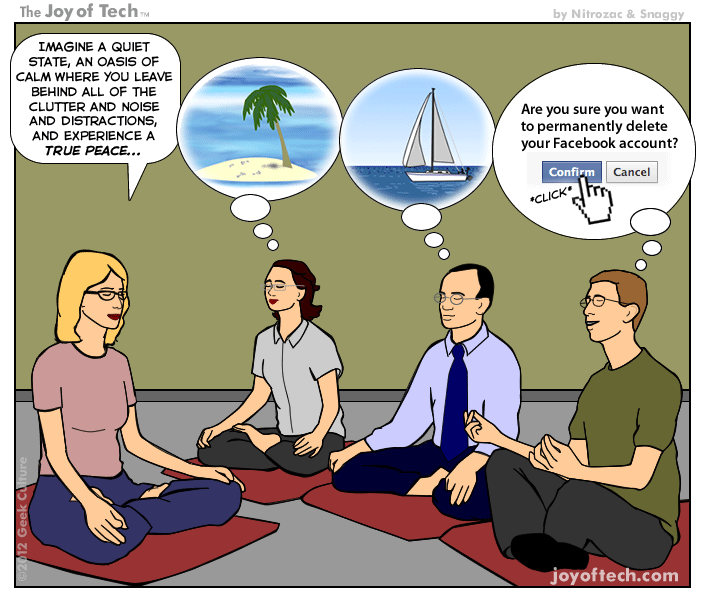
Facebook is a behemoth, no doubt about it. Over one billion users, including everyone from the president and businesses to you and me, it’s a force to be reckoned with. Even in light of their recent manipulations of users, the apparent defections to other services, and the fact it’s led by a guy like Mark Zuckerberg, it’s still is a cultural phenomenon and an effective way to connect not just with friends and family but brands and public figures as well.
When I was on the east coast recently, I had at least seven different people tell – not ask; TELL – me to get back on Facebook. I said I’d think about it, but haven’t done it yet. Then, just yesterday, I got a text from someone asking if it was ok to have movie night at my house. I hadn’t heard from this person in three months, and I replied that while I was fine with it, the request was out of the blue.
She agreed, but said everyone else keeps talking about it so she figured she may as well ask me.
I was taken aback. For three months everyone has been talking about having a movie night at *my* house but no one ever asked me? I wasn’t part of the conversation?
It turns out that I wasn’t part of the conversation because I’m not on Facebook. Since they’re all 20 years younger than me, I guess that’s how the kids communicate these days when they’re not on my lawn. And because of that, I’m not made part of the conversation of which I’m the subject!
Earlier this year I wrote about a project titled “99 Days of Freedom” that asks people to go 99 days without Facebook, and explained why I deactivated (but not deleted) my account. It’s been odd; I’m out of touch in many ways, but quite free in others. So since the subject of Facebook has come up so many times in my personal life recently, I thought I would revive the post and see how many of you think you could last over three months without it, or have reasons of your own for leaving. It’s a very interesting socio-technical consideration.
A New Oculus Rift
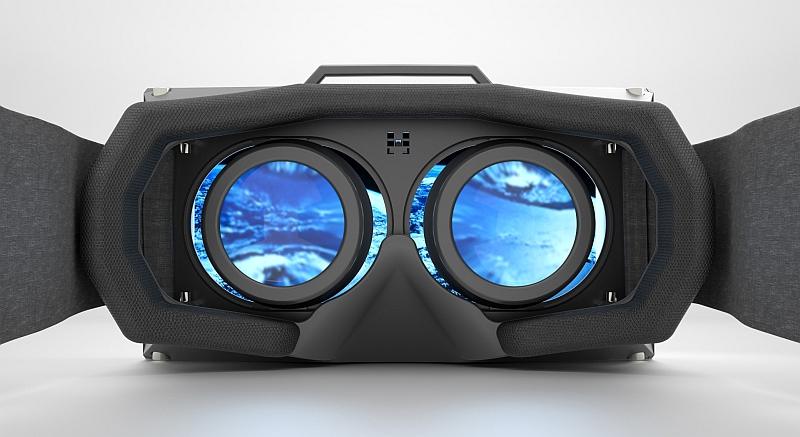
You know, the Oculus Rift is a real Marmite thing to me: On the one hand, I’m really getting tired of hearing about it. Tired of hearing how great it is, tired of hearing about the development kits that are being released, tired of hearing no dates for release, I’m just getting tired of all the in-a-vacuum hype (no-one criticizes the thing, so I couldn’t add a link there).
On the other hand, I can’t [profanity redacted] wait for it to be released. It’s one of the few bits of technology that I believe will be revolutionary, a game changer in more ways than one.
And now they’ve just released a milestone new development kit called “Crescent Bay,” and big surprise, it’s pretty great.
In case you’re not familiar with the Rift, it’s a virtual-reality headset that you wear over your eyes and actually works, perhaps the first of its kind. It supports 360-degree movement and head tracking, so if you spin around, or look up, or down, or wherever, it tracks that and adjusts the view accordingly. From what I’ve heard, it’s so insanely immersive and unbelievable an experience that I have yet to hear a single bad review.
Here’s someone exploring Tuscany using the Rift
But all that is the problem. There’s no release date. They keep releasing development kits, with each one having vast improvements over the previous. Bloggers and journalists keep talking about how fantastic the experience is. They even have legendary programer John Carmack on board as Chief Technology Officer, for which he left his position at id Software, the company he founded and where he programmed the games that made him a millionaire like Doom and Quake, and who also programs software for low-earth orbit spacecraft at his other company Armadillo Aerospace. If a guy like that believes in it, it must be fantastic.
Of course, there was a huge, and I mean HUGE brouhaha when it was announced Facebook of all companies was buying Oculus, the company that makes the Rift headset, for $2 billion. No one knew why a company like Facebook would want a technology like the Rift, who would want to explore Facebook using VR? Exploring the ocean, or outer space, or a (not so) derelict spaceship, now that sounds more like it. In case you think it is no more than a game system, it is also seeing educational applications on the level of teaching surgeons their techniques, and in one instance allowed a terminally-ill woman experience a place she had always wanted to go (warning: the video in the linked article is touching but very sad).
In what may be a threat to the Rift, out of nowhere came Sony with a product called Project Morpheus that actually looks like it will be just as capable if not more so, and likely released sooner. Plus, it looks cooler, in as much you want to look like the person they never let join Daft Punk.
Here’s a video of Project Morpheus title The Deep:
The huge, and in my opinion very bigly huge problem with Sony’s plan is Morpheus only works with the Playstation 4 (for now) and will require the Sony camera and motion controllers. That seems very limiting in many different ways, but the PS4 sales have been doing well so who knows.
The Rift has a lot of potential, I think it’s one of the main future directions we’ll see technology go, if they would just [expletive deleted] release it already.
The FBI’s facial recognition system comes online
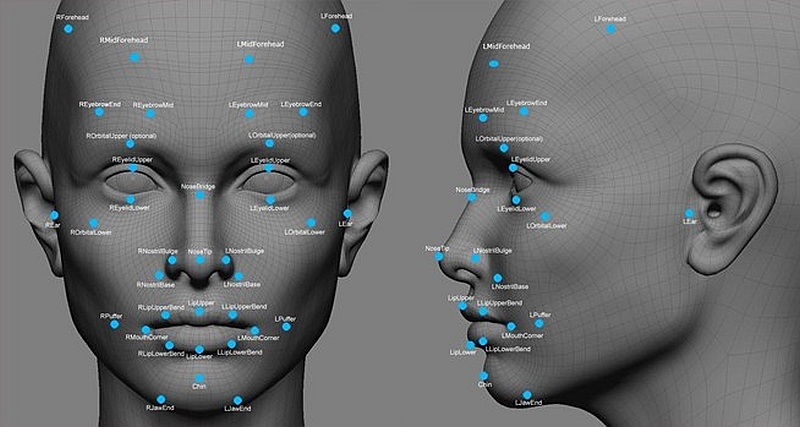
Privacy and security come up a lot with technology, and if you’re the suspicious type, something may seem awfully suspicious about this. The FBI has announced “Full Operational Capability” of it’s Next Generation Identification (NGI) system, which has been in development for three years and serves as an umbrella biometric identification system that will incorporate facial recognition and fingerprint identification capabilities along with things like voice prints sand other abilities.
For the fingerprint aspect of the system, NGI will be replacing the bureau’s current Integrated Automated Fingerprint identification System (IAFIS), which no one seems to mind. It’s the new facial recognition capabilities that have people riled up.
This new facial recognition component, the Interstate Photo System, is intended to treat faces like fingerprints; using automated software to scan photos of people and match the face in a photograph to a face already in the database. In other words, just like with fingerprints, if law enforcement has a photo of someone, they can compare it to the images in their database of faces, and the system will return 50 likely candidates. The database is expected to have over 50 million faces by next year.
Many states are already participating in the program, as can be seen in the map below. MOU, in the legend, means ‘Memorandum of Understanding,’ which is simply an agreement on an ideal between two parties, it indicates they are on the same page about something.
It has been decried, of course, by many groups including the main anti-monitoring group the Electronic Frontier Foundation, which is often at odds with government at all levels for their surveillance and monitoring practices. The big issue is the possibility of false positives, or accuracy in general, which is the main issue the EFF takes. From reports, of the 50 faces returned, there is an 80 percent probability that the actual matching face will be returned in the results. However, the system has already had success and I suspect will continue to expand rapidly in practice.
This is a sensitive subject, so let me make a couple of comments: First, as we have already said on this site, privacy and security are mutually exclusive. If you want one, you give up some of the other. You can’t have complete privacy and complete security. In this day and age, with what is happening in the world, the balance of one versus the other is a seemingly impossible judgement.
Also, Facebook and Apple have been using facial recognition for years and no one seemed to mind. In fact, here in Las Vegas s have been using it for YEARS for essentially – but not quite – the same purpose the FBI now claims and we’ve been ok with it. Priorities, I suppose.
You can see an unclassified PowerPoint presentation about the system that has a few additional details at this link.
Can you go 99 days without Facebook? Also, Why I Deactivated My Account and the Posts That Made Me Do It.
This is long. I’m just warning you ahead of time that this is long. In fact, I’ve been working on it for a few days. I think it might be getting longer on its own – I’ve created the first living, breathing post. Bow down to your new overlord!
So, apparently Facebook is pretty popular. Over 1 billion users. The determinant of whether you are cool or uncool. The ability to affect your mood. Something known as Facebook Stalking. Academics using it for sneaky research. People all over the world, and even all over time, connecting. What I wouldn’t give to see how Thomas Edison and Nikola Tesla, whose 158th birthday is today (or July 10th for those reading later), would have argued over who invented what on Facebook. It would have been glorious.
Now, in response to the previously linked-to article about the social experiment Facebook was complicit in running, in which posts were selectively presented to affect users’ moods, there is a new movement that is asking people to leave Facebook for 99 days and see how they feel. Called ‘99 Days of Freedom,’ participants will be surveyed at equal intervals in their absence to see how their moods, and lives, have been affected. After all, some are saying Facebook makes you sad, so it makes sense giving it up for a while would have the opposite effect, right?
Could you go for 99 days without Facebook? It’s like the phone question I asked in the first class. If you feel you can, sign up at their site and keep us informed of your progress. Sadly, only about 4,000 people have signed up thus far.
 I was on Facebook for a little while. Not too long, and I was a serious latecomer, only signing up in, perhaps, 2011. Even then, I only did it at the behest of my now ex, who – just to add to my points above – claimed a relationship couldn’t be considered official until it was something known as “Facebook Official.” I didn’t know what that meant, but everyone else I knew was on it, they were all talking about how great it was, so I figured this was as good a reason as any to jump in to the fray.
I was on Facebook for a little while. Not too long, and I was a serious latecomer, only signing up in, perhaps, 2011. Even then, I only did it at the behest of my now ex, who – just to add to my points above – claimed a relationship couldn’t be considered official until it was something known as “Facebook Official.” I didn’t know what that meant, but everyone else I knew was on it, they were all talking about how great it was, so I figured this was as good a reason as any to jump in to the fray.
Almost immediately I started getting friend requests. And not just from my regular friends, but from people I hadn’t seen in years. Sometimes many, many, MANY years. People from other countries I knew from my youth, my piano teacher when I was a kid, high school buddies, it was exciting.
 I made my first post with but a little trepidation, as I wasn’t familiar with this new social medium, but everyone who knew me knew me, and I assume knew the types of post I would make, and it went over well. Acceptance! That was quite nice too. I’d make posts about music, and random things that struck me, I’d read with interest what other people were up to, even administered a page with 500 followers that displayed incredible photographs of spiders. Over the couple of years I was a member, many interesting social experiences happened. I participated in a distant kind of way in weddings and even a funeral. Four of my exes, spanning the years from high school to college and all long since married sent friend requests, as did people I barely knew, or didn’t know at all (but they knew me). An old friend who lived in Sweden that I hadn’t seen or spoken with since I stayed with his family for a summer in 1983 sent a friend request, saying he had been looking everywhere for me, then never contacted me again. I watched a married couple I know have Facebook conversations with each other when they were clearly in the very same room. And that’s when it started to happen.
I made my first post with but a little trepidation, as I wasn’t familiar with this new social medium, but everyone who knew me knew me, and I assume knew the types of post I would make, and it went over well. Acceptance! That was quite nice too. I’d make posts about music, and random things that struck me, I’d read with interest what other people were up to, even administered a page with 500 followers that displayed incredible photographs of spiders. Over the couple of years I was a member, many interesting social experiences happened. I participated in a distant kind of way in weddings and even a funeral. Four of my exes, spanning the years from high school to college and all long since married sent friend requests, as did people I barely knew, or didn’t know at all (but they knew me). An old friend who lived in Sweden that I hadn’t seen or spoken with since I stayed with his family for a summer in 1983 sent a friend request, saying he had been looking everywhere for me, then never contacted me again. I watched a married couple I know have Facebook conversations with each other when they were clearly in the very same room. And that’s when it started to happen.
I became disenchanted. What was once a fun, interesting place to be where friends would share vacation and wedding photos and make posts about things that were interesting and fun to read about began to morph into a place that was not what it once was. Instead of a broad range of posts, I would see the same types of posts over and over, and they weren’t interesting, they were…irritating. This isn’t a condemnation of my friends (for the most part), but rather an effect of the medium; It doesn’t encourage deep, thoughtful conversation or meaningful debate, I’m of the opinion it actually discourages it. After a while, I had had enough, I was becoming agitated when I would log on because of the posts I was seeing, not entertained or enraptured, and it was then I knew I had to do it.
It was in March of this year that I deactivated my Facebook account, although since I didn’t delete it outright if I log back in it will apparently all come back. There were doubts; Facebook is so popular that I wonder if I have missed out on someone who is trying to find me, although I have a LinkedIn account they could find. Honestly, LinkedIn is no better, it’s the same inanity couched in the thin veil of professional networking, as opposed to Facebook’s social networking. I even had someone I used to know contact me through LinkedIn, tell me how excited they were to have finally found me, then never responded to my response, just like what happened on Facebook. Maybe it’s me.
Anyway, I realized that part of the problem is that there were really only about ten different kinds of posts/posters I was seeing, the variety that used to be there was gone. Occasionally there would be a gem among the nonsense, but it was rare. So I have decided, for cathartic as well as informative reasons, to share with you my take on the most common types of posts and posters I saw. These had to make up at least 90 percent of everything that came across my feed. They may not apply to everyone, they may simply be a result of the type of people I know, but that made them no less aggravating.
Here we go:
The Foursquare Check-In
 Foursquare, apparently, allows you to check in at a location so friends know where you are. But does anyone really care? I’d see them all the time: “So-and-so is with their husband/wife/Significant other/dog/cat/religious leader/function/whatever.” Do people actually see that and say “Hey, so-and-so is there, let’s go there too and interrupt them!” Why would you want people to know where you are all the time? Isn’t one of the privileges of adulthood *not* having to do that? One person would make these Foursquare posts ten times a day, letting us know every movie/restaurant/retail store/dog park/wedding/whatever else they were doing at all times. All it told me is they weren’t home and their house was unprotected. Thanks, that’s good to know.
Foursquare, apparently, allows you to check in at a location so friends know where you are. But does anyone really care? I’d see them all the time: “So-and-so is with their husband/wife/Significant other/dog/cat/religious leader/function/whatever.” Do people actually see that and say “Hey, so-and-so is there, let’s go there too and interrupt them!” Why would you want people to know where you are all the time? Isn’t one of the privileges of adulthood *not* having to do that? One person would make these Foursquare posts ten times a day, letting us know every movie/restaurant/retail store/dog park/wedding/whatever else they were doing at all times. All it told me is they weren’t home and their house was unprotected. Thanks, that’s good to know.
The “One-like-equals-one-prayer” post
 This might be not only one of the most offensive types of posts that can be made, but one of the most offensive things I’ve ever seen. A picture will be posted of someone suffering from a terrible disease, and the poster will have the audacity to claim that if you ‘Like’ the post that is the equivalent of one prayer, and if you ‘Share’ the post, that is the equivalent of ten prayers.
This might be not only one of the most offensive types of posts that can be made, but one of the most offensive things I’ve ever seen. A picture will be posted of someone suffering from a terrible disease, and the poster will have the audacity to claim that if you ‘Like’ the post that is the equivalent of one prayer, and if you ‘Share’ the post, that is the equivalent of ten prayers.
Everything is wrong with this, and nothing is right. First of all, who designated these quantities? What authority came up with these numbers? Why is one ‘Like’ not two prayers? Or four? or one hundred? Same for shares. Also, is this really implying that G-d himself is sitting up there somewhere allocating prayer reserves based on Facebook interaction? Is it implying there may be some hope for a terminal disease if enough people just ‘Like’ or ‘Share’ hard enough?
The intention behind these posts may be genuine, but the result is nauseating.
The self-promotion flood
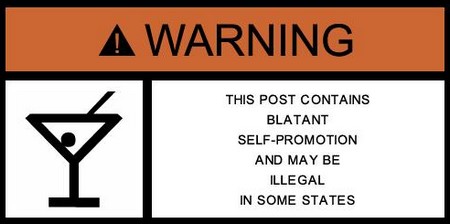 One of my friends plays in a band. A good band. Another friend plays in the same good band. I liked the band page to be supportive. The problem was, when there was a gig, or after a gig, all the members would blast each other with “Awesome gig dudes!” and “We were tearin’ it up at Vamp’d tonight!” and post tons of pictures and that kind of thing. The problem was, they’d all share each others posts and soon my wall was flooded with 75 copies of the same pictures, the same posts and the same people over and over. I didn’t want to block them completely, but when these happened Facebook was almost unusable. It was like being at one of their shows.
One of my friends plays in a band. A good band. Another friend plays in the same good band. I liked the band page to be supportive. The problem was, when there was a gig, or after a gig, all the members would blast each other with “Awesome gig dudes!” and “We were tearin’ it up at Vamp’d tonight!” and post tons of pictures and that kind of thing. The problem was, they’d all share each others posts and soon my wall was flooded with 75 copies of the same pictures, the same posts and the same people over and over. I didn’t want to block them completely, but when these happened Facebook was almost unusable. It was like being at one of their shows.
The deliberately vague plea for sympathy
 These were the first types of posts that really started getting under my skin. This is the post that clearly lets EVERYONE know something is wrong, yet provides exactly no information. Posts like “Well this sucks” or “I guess it’s all happening again” or “Could it get any worse?” Instead of simply confessing the problem, this type of posts begs you to respond and shower pity on the poster. You’re supposed to say things like “Oh no, what’s wrong?” and “Is there anything I can do to help?” and “I’m here for you!”
These were the first types of posts that really started getting under my skin. This is the post that clearly lets EVERYONE know something is wrong, yet provides exactly no information. Posts like “Well this sucks” or “I guess it’s all happening again” or “Could it get any worse?” Instead of simply confessing the problem, this type of posts begs you to respond and shower pity on the poster. You’re supposed to say things like “Oh no, what’s wrong?” and “Is there anything I can do to help?” and “I’m here for you!”
These bug me because they’re asking for expressions of generic pity. If something is wrong, say it. I don’t mean to sound like a heartless jackass, if someone needs my support I will be right there for them. I am very aware that a support structure is the most important thing anyone can have in a time of crisis, but you need to tell me what’s happening, don’t require me to deduce the situation. If you tell me what’s wrong I can help; if you don’t, I can’t.
It’s like the person who runs up to you completely agitated saying “Oh god, oh god, this is terrible” and when you ask them what’s wrong they say “I can’t talk about it right now!”
The “Please Like and Share!” posts
 Don’t tell me what to do with your post. First of all, the concept of Facebook ‘Likes’ rubs me the wrong way. Saying “Like my page” or “Like me on Facebook” sounds SO pleading and desperate I don’t even ‘Like’ the use of the word ‘Like.’ I dislike ‘Like.’ I’m also not sure why I keep putting the word ‘Like’ in quotes. Or capitalizing it. I don’t ‘Like’ that.
Don’t tell me what to do with your post. First of all, the concept of Facebook ‘Likes’ rubs me the wrong way. Saying “Like my page” or “Like me on Facebook” sounds SO pleading and desperate I don’t even ‘Like’ the use of the word ‘Like.’ I dislike ‘Like.’ I’m also not sure why I keep putting the word ‘Like’ in quotes. Or capitalizing it. I don’t ‘Like’ that.
So when a post wouldn’t just make its point but also ask me to “Please Like and Share!” I immediately didn’t want to. The post is on Facebook, that’s what people do. They ‘Like’ and they Share. You don’t need to make a pathetic plea for validation. If I like it, I’ll ‘Like’ it, and if I want others to see it, I’ll share it. But if I don’t think it warrants either of those, or even one but not the other, I’ll take care of it.
I don’t ‘Like’ those.
The Drinker
 All this person does is make posts about alcohol. Where they’re drinking, what they’re drinking, why they’re drinking, where they’ll be drinking next, where they were drinking before they were drinking, where they’ll be drinking tomorrow, who they are drinking with, where they were drinking yesterday, where they’d rather be drinking, what they’d rather be drinking, who they’d rather be drinking with, why aren’t you drinking with them, drinking is awesome, they can’t wait to start drinking.
All this person does is make posts about alcohol. Where they’re drinking, what they’re drinking, why they’re drinking, where they’ll be drinking next, where they were drinking before they were drinking, where they’ll be drinking tomorrow, who they are drinking with, where they were drinking yesterday, where they’d rather be drinking, what they’d rather be drinking, who they’d rather be drinking with, why aren’t you drinking with them, drinking is awesome, they can’t wait to start drinking.
And now they’re hungover. There’s a pot and sports version of this person as well. In fairness to them, I don’t drink, use drugs or follow sports and never have, so maybe I’m just missing the point.
The out-of-nowhere (or phony) sorrow
 It’s always sad when someone passes away, even the posts about animals moving on to the great beyond are heart wrenching. However, when a person who used to play a bit-part in a 70’s sitcom passes away, while I don’t get any joy from it, I wonder why some people seem to be devastated. “I just heard the guy who played drunk #21 in Barney Miller passed away. Very sad. You were one of the funny ones, you’ll be greatly missed.”
It’s always sad when someone passes away, even the posts about animals moving on to the great beyond are heart wrenching. However, when a person who used to play a bit-part in a 70’s sitcom passes away, while I don’t get any joy from it, I wonder why some people seem to be devastated. “I just heard the guy who played drunk #21 in Barney Miller passed away. Very sad. You were one of the funny ones, you’ll be greatly missed.”
Yes, by his family and friends. But prior to today, I never heard you mention Barney Miller, never knew you to watch Barney Miller, never heard you mention that actors name, now all of a sudden it’s a great loss and you’re in mourning? Again, I’m not minimizing anyone’s death, but where does this come from?
I hope I get the same recognition when My time comes. Don’t let me down! I can see the posts now: “I just heard that dude with the hair who taught me about disk drives at NSC bit the dust. Very sad day. I think his name was Hank. Maybe Bill.”
The chronic petitioner
 Some of us convinced a mutual friend of ours to sign up for Facebook since we were all scattered all over the country. We had entered into a venture with him and it was a good way to communicate. Once he joined, the only thing he ever posted were pleas for us to sign various petitions. Random petitions, too, no apparent theme. Petition to not tear down a drive-in, petition to remove Soylent Green from chocolate milk, petition to require penguins to wear long pants, petitions to change the spelling of ‘turtle’ to ‘blarty,’ and any other weird sort of petition you can imagine. And he meant business; each post came with a lengthy, passionate explanation of the cause and why he believed in it. He wasn’t being facetious, he really felt that penguins should wear long pants.
Some of us convinced a mutual friend of ours to sign up for Facebook since we were all scattered all over the country. We had entered into a venture with him and it was a good way to communicate. Once he joined, the only thing he ever posted were pleas for us to sign various petitions. Random petitions, too, no apparent theme. Petition to not tear down a drive-in, petition to remove Soylent Green from chocolate milk, petition to require penguins to wear long pants, petitions to change the spelling of ‘turtle’ to ‘blarty,’ and any other weird sort of petition you can imagine. And he meant business; each post came with a lengthy, passionate explanation of the cause and why he believed in it. He wasn’t being facetious, he really felt that penguins should wear long pants.
The generally inappropriate post
 Random posts can be really funny. With this classification however I’m referring to the posts that just make you want to shower, or go outside, or call your mom, or something to dilute what you just read. “Met a girl last night, ended up back at my place doin’ the worm.” “Hey everyone, look at this picture and tell me if this is a wart or a boil, I can’t tell. Part of it came off in the bed if that helps.” “It’s time to overthrow the Communist American government! Who’s with me? Meet up at Bennigans to begin the assault!” “I’M DRUNK!”
Random posts can be really funny. With this classification however I’m referring to the posts that just make you want to shower, or go outside, or call your mom, or something to dilute what you just read. “Met a girl last night, ended up back at my place doin’ the worm.” “Hey everyone, look at this picture and tell me if this is a wart or a boil, I can’t tell. Part of it came off in the bed if that helps.” “It’s time to overthrow the Communist American government! Who’s with me? Meet up at Bennigans to begin the assault!” “I’M DRUNK!”
These are the types of posts and people that finally caused me to deactivate, but not delete, my account.
When I tell people the things I’ve expressed in this post, I get a lot of feedback about how I can just block people or unfriend them. I get that, but why would I do that? I’m glad to have connected or reconnected with them, why would I accept a friend request and then block or unfriend them? I’ll say it again, it sounds like this is a condemnation of the people I know, but it isn’t. They’re not dumb, they’re not inane, they’re not vacant, if they were we wouldn’t be casual acquaintances, let alone friends. Everyone is idiosyncratic and has their own character, that’s what makes us great. What I needed was a general break from the overall experience. I haven’t missed it.
I also haven’t tried the new, trendier networks like Instagram or Snapchat or Twitter, although I have considered a Twitter account for this class, although I’m not convinced of its value as a pedagogical tool.
My very close circle of friends, who frankly you could count on one hand, I am still in touch with through email, texts and calls. They were all very understanding of my thoughts about Facebook, and even expressed some similar feelings.
Let me say that I have nothing inherently against Facebook, and I’m not one of the virulent anti-Facebook preachers either. It actually is a great way to keep in touch with, and reconnect with, people from all over the world and even across time that you may not have seen in ages. I just needed a break. Perhaps someday I’ll take another look and see what’s going on.
(This was my cover image. Bask in its glory.)
It’s either not a big deal, or the end of the world.
As some of you know, about two months ago I deactivated my Facebook account. I desperately needed a break from all the passive-aggressive posts that cried out for attention yet gave no details (you know, posts like “Well this sucks”), the posts that pleaded with me to “please like and share,” which come across as a desperate cry for validation, and the Foursquare check-ins whose purpose I have yet to understand, but thanks for telling me no one’s at your house for the next two hours. I don’t actually have anything inherent against Facebook, I used it to keep in touch with friends and colleagues from around the world, I just needed a break. Apparently if I log back in everything will come back. I don’t know if I ever will, but never say never.
Anyway, apparently Facebook crashed on Thursday morning for about 30 minutes, making the service unavailable worldwide for millions and millions of users. People began to panic; almost immediately the (sigh) hashtag #WhenFacebookWasDown shot through the roof, and people started posting to rival social media sites such as Twitter and Google+ asking if it was the apocalypse, the rapture, and stating they’d always remember where they were when Facebook died. That, incidentally, led to some hilarious tweets.
As the article states, some pseudo-over-reactionary named John Pudny facetiously lost his mind, tweeting “It’s the end of the world…#Facebook is DOWN!!” I don’t think media reports on that particular tweet, which was widely quoted, picked up on the troll nature of that tweet.
That all happened within 30 MINUTES! It’s not a big deal if a website crashes, people, especially one as massive and non-critical as Facebook. You can go half an hour without it, everyone survived the outage last October when the site went down for hours due to maintenance. It was not a disaster of biblical proportions, there was no human sacrifice, dogs and cats didn’t start living together, but there was plenty of mass hysteria. Now that it’s back up, please like and share this post.
Random-stuff-I-Found-Friday!
As I said in my previous post, I love the history of technology as much as as, and in some cases even more, than the present; I consider myself quite the historian when it comes to tech. It’s why I still have a working Atari 2600, Commodore 64, and Apple IIe in my house. So what could be better than combining a vintage aesthetic with modern technology?
Some of you might have seen these before, they’ve been around for about a year, but I just rediscovered them this week. They are vintage advertisements for modern technologies (services, really, but that’s an issue of semantics). You can see Skype, Twitter, Youtube, and Facebook in all their retro glory. Some of the faux technologies in these posters actually did have real-life dopplegangers such as the video phone from 1964. These are great posters, and do an outstanding job of contrasting what was with what is. You can see the posters below.

